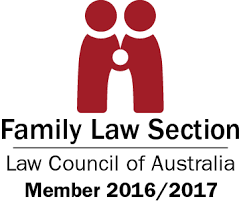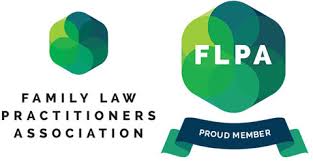Consent Orders with a Property Settlement
Australia’s leading fixed Fee Consent Orders Solution for amicable Property Settlements. No hidden fees, no drawn-out process, just fast, affordable results for your Consent Orders, servicing all of Australia.
What Do You Need Help With?
- We do not try to change your agreement. We are a neutral party happy to with both parties for a quick resolution.
- Fast. Our Consent Orders will be prepared in 24Hrs at a fixed fee.
- Reasonably priced. You can obtain a Property Settlement from $2455
- Professional. We are Accredited Specialists in family law (NSW and QLD).
- Easy to deal with. We offer you a fully remote service with Rachel and Brendan.
- Comprehensive. We complete every step of the process – Application for Consent Orders and Minute of Order.
- Respectful of your wishes. There will be no further negotiation between parties – we just draft your agreement with no interference.
- All documents are digitally signed reducing delay.
Whatever stage of life you’re passing through, we can document and finalise a legal arrangement to help you find certainty.
Real Estate.
The drafting of property orders in your agreement is important, as well as allowances for stamp duty exemptions and contingencies for non-compliance.
-
Consent Orders can assist parties with transferring property between themselves and providing appropiate allowances for stamp duty exemptions.
-
The Sale of property with orders specifying how the proceeds of sale with be shared.
-
Allowances for the sale or transfer to occur at a later date.
-
Court orders specifying one party will retain their own property and nobody can make claims again in the future
-
The sale transfer or retention of real estate within Family Trusts, SMSF's or companies.
While it is not a requirement to split superannuation, it is considered in the final percentage calculation. It should be noted that all funds are allowed 28 days to respond to a request for transfer. While many superannuation funds are faster, all parties should be aware of the requirements to seek approval before lodging consent order with the Family Court.
Superannuation.
-
Superannuation splitting orders for accumulation and defined benifit Funds
-
Self-Managed Superannuation Funds (SMSF) are easily transferred.
-
Each retains their superannuation so nobody can make a claim in the future on your fund.
-
Procedural fairness for obtaining approval for your fund to be split for submission to the Family Court
-
Defined benefit valuations and form 6 requests are included in our fixed fee.
Business.
-
Transfer ownership of a business entity between parties.
-
Ensure one party keeps a business and the other will have no claim on it in the future.
-
Companies, Family Trusts and business entities.
We work with your accountant to ensure that your agreement is compliant with your legal structures. We recommend having your account review the document and are very happy to assist with this.
Everything else.
-
All bank accounts including Joint, Business and Personal accounts.
-
Cars boats trailers
-
Investments, shares cryptocurrency and deposits
-
Loans credit cards, personal loans, Debts, ATO debts
All assets and liabilities must be included at the current value – Not the value at separation. All assets and liabilities need to allocated to a party. There can be no confusion as to who is responsible. If they are being transferred or sold, timeframes need to be created and if this doesn’t occur what the steps will be. are to
Fixed Fee, Full-Service Consent Orders from $2970 – Property Settlement
We assist with amicable Property Settlements delivered in 24 hours at a fixed fee. No matter what the agreement is we can draft the agreement.


Fixed Fee Parenting Orders – $2420 plus court fees
Kate Austin Family Law will prepare Parenting Orders to make your parenting plans legally binding in just 24 hours. We are Accredited Specialists in Family Law with over 20 years of experience in creating legally binding Consent Orders across Australia. We will follow your instructions to the letter to ensure we document your agreement.
Fixed Fee Property and Children’s Consent Orders – $3740 plus court fees.
By using the same application and court fees, filing both Parenting and Property Agreements is a very cost and time effective way of finalising your Family Law agreement.



We work with amicable parties. – we don’t represent either of you.
In our role as a neutral third party, we do not represent either party. We do not offer legal advice but rather procedural advice. It is up to each party to seek legal advice if they so desire. If there is any uncertainty, we encourage parties to seek independent advice.
Our specialty is amicable separations.
Consent orders do not require parties to obtain independent legal advice. Again, clients are free to do so.
We work with amicable parties. – we don’t represent either of you.
Things to know before you call Kate Austin Family Law for Consent Orders
We have a strict non-conflict policy – We are family lawyers who won’t fight.
If you’re looking for a family lawyer to help you with your Consent Order, there are some important things you should know before calling Kate Austin Family Law:
We have made a deliberate choice to avoid involvement in disputes between parties. With a quarter-century of experience in Family Law, we have contributed enough to resolving conflicts. If you don’t have an amicable relationship with your former partner, our firm may not be the right fit for you.
When you contact us, we will respond that we are “too old and too tired to fight.” Not necessarily too old, but we prefer to allocate our energy to more constructive endeavours than combat.
We do not meddle in your Property Settlement agreement.
.
Our clients have agreed amicably. For some, this happens quickly, for others, it doesn’t. We respect the effort that you have taken to finalise your situation. So long as we believe that your “agreement is fair” and as we act as a neutral party, we will never advise one party to change the agreement. We do not offer independent legal advice.
In conjunction with a mediation session, our fixed fee consent orders QLD or NSW provide excellent value for your family law matters, and may be one of the most cost-effective and timely ways to resolve your family law matters without having to go to court.
We only do Consent Orders.
We only work with clients to draft consent orders. We do not dabble in anything else, and we do not engage in litigation matters. We do not draft Binding Financial Agreements or prenuptial agreements or offer other services.
We are a national service.
We assist clients all over Australia and, in fact, the world so long as their matter can be determined in the Australian Family Court. Family law is a national law governing all Australians equally. The same rules apply in all states ( with some exceptions in Western Australia). Your consent orders can be determined by a registrar within any state (except Western Australia). We have offices in Sydney, Melbourne, Canberra & Brisbane, contact us today for your quote.
We only offer fixed fees.
For simplicity, we only charge fixed fees, avoiding confusion and eliminating a potential dispute over fees. We advise our fees in advance and provide you with a trust account request for that amount. That money will remain in your trust account until the matter is finalised. Then we will pay your account usually a week or two later. Fixed fees avoid potential conflicts.
We will only accept your matter if we believe it’s “just and equitable”.
We complete quite a few hundred matters each year. We are proud that we have never had a matter ejected by the Family Court. We can never guarantee what the court will decide; however, after 25 years of Family Law, we can select matters that the Family Court will approve.
What is in a Property Settlement Consent Order?
Requirements
All assets and liabilities need to be included in the Consent Order.
This is regardless of whether you retain the assets, transfer them between parties, or sell them. This is a requirement by the Family Court to ensure that they are able to make an assessment as to if the agreement is “just and equitable” or fair.
It’s essential to include a timeframe each time an asset or liability is to be sold or transferred. Failure to do so renders the order unenforceable. In the event that one party fails to complete a task within the specified period, the Family Court requires a clear outline of the necessary steps to complete the order.
Examples may include.
- If a property is not transferred within the agreed time, the property must be sold.
- If the agent for the sale of a property cannot agree on who will allocate the agent?
- Who will determine the sale price if the price cannot be agreed upon?
Values must be current.
Even though the date of separation may have been quite a while ago, you need to disclose your current values of assets and liabilities.
As a general rule, you are better off formalising your agreement sooner rather than later.
The Family Court cannot change your agreement.
The Family will not change your agreement without your consent. In fact, if your agreement needs changing, you must submit an amended agreement for its consideration.
Attendance in Court
A Consent Order in Family Law is an agreement between two parties in a domestic relationship. The agreement is presented to the Family Court to be formalised without needing the parties to attend the Family Court.
Property Settlements can include Children’s orders as well.
The application for Consent Orders can include property settlements and or Parenting agreements.
What is the Kate Austin Property Settlement process?
Step 1. Talk to us. We work to help people. We need to understand if we can help you, and you need to be comfortable working with us. If we think you can help, we will say so. If not, we may be able to provide you with some suggestions.
Step 2. – We will send you our intake forms and fee disclosure – Talk with your former partner and make sure everyone is comfortable.
Step 3. – Complete the intake forms – we provide these for you. They are online and a question answer format.
Step 4 – We draft your agreement in 24hrs and make changes in a further 24hrs
Final Step—We will send you your agreement to sign electronically using codes on your mobile. Once you have signed, we will submit it to the Family Court. The Family court should approve your agreement within 4 weeks or less.

How long do Property Settlement Consent Orders take?
How long does it take a client to Submitting Intake forms?
Generally, it will take clients 30-40 minutes to collect all the required information for a property Settlement.
How long will Kate Austin Take to draft the agreement?
- We will take 24hrs to draft the agreement
Changes required?
We will have these completed in 24hrs.
Superannuation approval
Superannuation funds have 28 days to approve proposed orders.
The Family Court
- The Family Court has no set time; however, we keep a current metric on average times. 2023 and 24 have been running at an average of 4 weeks.
Associations of Which We’re Part
As experienced family lawyers, we’re also a member of Australia’s leading law associations.





Questions on Consent Orders?
Having practiced family law for 20 years, we know all the ins and outs. Many clients have questions about how Consent Orders and other financial agreements work in their particular situation. If you’d like to know how these agreements help you move on with life, get in touch and schedule a free, no-strings-attached chat.
Why do People Choose Kate Austin for their Property Settlement?
01
We are experienced.
We have over 25 years of experience in family law. Since moving to amicable Family Law, we have completed 2980 Family Law agreements approved by the Family Court. (January 2024) We have direct contacts in superannuation Funds for superannuation splitting orders. On file, we have 157 superannuation funds approved court orders. We have an extensive support network of valuers, actuaries, accountants, financial planners, and mortgage brokers who are able to assist clients.
02
We are very focused on client service.
As a small business, we need to earn people’s trust. We do this by doing what we say we will do and when we say we will do it.
03
Our fees are always fixed.
To avoid conflict, we are very transparent with our fees. You are provided with a fixed fee agreement and the terms of our service. Please have a look at our quote page to see how much we charge for your matter.
04
We are a neutral party.
We have made a conscious decision not to interfere with your agreement. Our job is to work with both of you to have your Consent Orders approved by the Family Court.
General Questions about the Consent Orders
Consent Orders require full financial disclosure of all assets and liabilities. Without full the full picture, the Family Court cannot make an informed decision about “just and equitable”.
No – The Family Court cannot change your agreement. The only option they have is to approve your request or initially requestion it and unsuccessful dismiss your application.
The court will make all reasonable attempts to ensure that one party is not being taken advantage of. Occasionally, we see matters one party is trying to submit an agreement that clearly is taking advantage of the other party.
Yes, even if there is a nominal amount, once again, it’s full financial disclosure.
Yes, all states and territories have provisions for stamp duty exemptions. While the rules do vary from state to state we will your orders will be compliant with your states regulation.
Contingency orders outline what happens if one party does not comply with an order with in the agreed terms.

